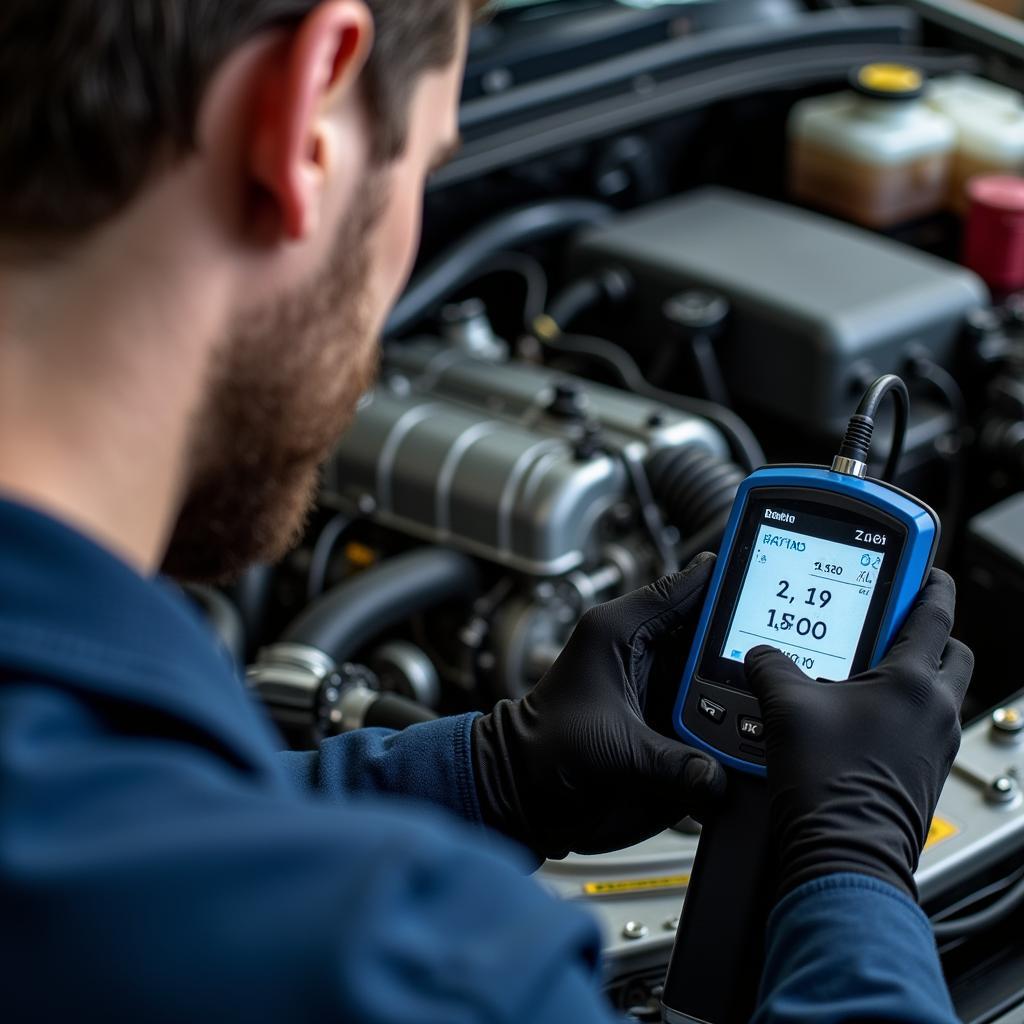Finding out your financed car has mechanical issues can be incredibly stressful. You’re still making payments on a vehicle you might not be able to drive. Don’t panic! This article provides a step-by-step guide to help you navigate this challenging situation.
Understanding Your Warranty and Loan Documents
Before taking any action, carefully review your car’s warranty and loan documents.
- Warranty Coverage: Check if your car’s mechanical problems are covered under the manufacturer’s warranty or any extended warranty you purchased. Note the terms, conditions, and duration of coverage.
- Loan Agreement: Your loan agreement outlines your responsibilities regarding the vehicle’s maintenance and repair. Familiarize yourself with any clauses related to repairs, insurance, and potential consequences of defaulting on payments due to mechanical issues.
Communicating with Lenders and Dealerships
Open communication is crucial when dealing with a financed car experiencing mechanical problems.
- Contact Your Lender: Inform your lender about the situation immediately. Explain the mechanical problems and inquire about any provisions in your loan agreement concerning repairs.
- Reach Out to the Dealership: If your car is still under warranty, contact the dealership’s service department. Explain the issues and schedule an inspection.
Exploring Repair Options and Costs
Once you understand your warranty coverage and have informed relevant parties, explore your repair options.
- Dealership Repairs: If your warranty covers the repairs, opting for dealership service is generally recommended. This ensures certified technicians use original parts, potentially extending your warranty coverage.
- Independent Mechanics: For out-of-warranty repairs or if you prefer more affordable options, consider seeking quotes from reputable independent mechanics specializing in your car’s make and model.
- Obtain Multiple Quotes: Always obtain multiple repair quotes to compare costs, parts used, and labor charges. This helps you make an informed decision about the most cost-effective option.
Negotiating with Involved Parties
Negotiation can play a crucial role in minimizing your financial burden:
- Warranty Claims: If your warranty claim faces resistance, don’t hesitate to negotiate with the dealership or manufacturer. Provide documentation, clearly state your case, and be persistent in advocating for your rights.
- Payment Arrangements: If you’re facing financial difficulties due to repair costs, discuss possible payment arrangements with your lender. They might offer temporary forbearance, reduced payments, or loan modifications to alleviate your financial strain.
“Remember, knowledge is power in these situations,” says John Smith, Senior Automotive Technician at XYZ Auto. “Thoroughly understanding your warranty, communicating transparently, and exploring all repair options empowers you to make informed decisions that protect your investment and your finances.”
 Mechanic Diagnosing Car Engine Problem
Mechanic Diagnosing Car Engine Problem
Protecting Yourself Legally
In some cases, legal assistance might be necessary to protect your rights as a consumer.
- Lemon Law: If your new car experiences repeated, substantial mechanical problems covered under warranty, and the dealership fails to repair them after a reasonable number of attempts, your vehicle might qualify as a “lemon.” Lemon laws vary by state, but they generally offer legal remedies, such as vehicle replacement or refunds.
- Legal Consultation: If you encounter difficulties dealing with the dealership, lender, or warranty provider, consider seeking legal advice from a consumer protection attorney specializing in automotive matters. They can guide you through your legal options and help you pursue appropriate action.
Preventing Future Problems
Once your car is repaired, take proactive steps to prevent similar problems in the future.
- Regular Maintenance: Adhering to your car’s recommended maintenance schedule—including oil changes, tire rotations, and fluid checks—can prevent minor issues from escalating into major mechanical problems.
- Thorough Inspections: When taking your car for service, request a comprehensive inspection to identify potential problems early, allowing for timely and often less costly repairs.
- Record Keeping: Maintain detailed records of all repairs, maintenance, and communication with the dealership, lender, and warranty provider. This documentation can be invaluable if you face future disputes or need to demonstrate proper vehicle care.
“Don’t underestimate the importance of preventative maintenance,” advises Sarah Jones, a seasoned automotive expert. “Regular checks and timely repairs not only keep your car running smoothly but can save you significant money and stress in the long run.”
Conclusion
Discovering mechanical issues in your financed car can be daunting, but proactive steps, open communication, and thorough knowledge of your rights and options can help navigate this challenging situation. Remember to thoroughly review your warranty and loan documents, communicate openly with your lender and the dealership, explore all repair options, and stand your ground when dealing with warranty claims. By taking these steps, you can minimize financial strain and get back on the road with confidence.
For personalized guidance and support in navigating car repair issues with your financed vehicle, don’t hesitate to contact Autotippro at +1 (641) 206-8880 or visit our office located at 500 N St Mary’s St, San Antonio, TX 78205, United States. Our team of experts is here to provide you with the information and assistance you need.
FAQs
1. Can I choose my own mechanic if my car is financed?
While your lender might have certain requirements, you generally have the right to choose your mechanic for repairs, especially if your warranty doesn’t mandate dealership service.
2. What if I can’t afford the car payments and repairs?
Communicate with your lender immediately. They might offer temporary payment arrangements or loan modifications to alleviate your financial burden.
3. Can I sell my financed car with mechanical problems?
Yes, but disclosing all known issues is crucial. Selling a car “as is” doesn’t absolve you from liability for undisclosed problems.
4. How long does the dealership have to fix my car under warranty?
This varies by state and warranty terms, but a “reasonable timeframe” is typically expected. Consult your state’s lemon laws for specific guidelines.
5. Can AutoTipPro help me negotiate with my lender or dealership?
While we can’t offer legal advice, we provide guidance and support in understanding your rights and options, empowering you to engage in informed negotiations.





Leave a Reply